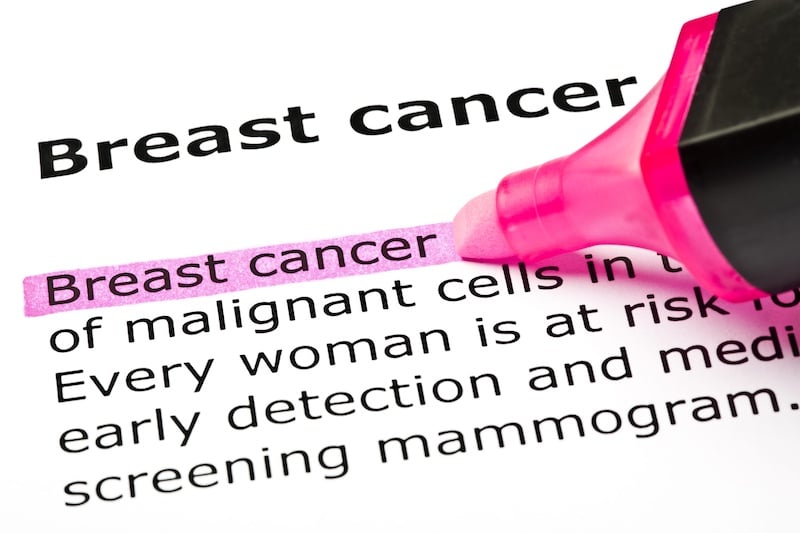Summary:
Hologic, Inc. and Biotheranostics, Inc. unveiled new data at ASCO 2025 showing that the Breast Cancer Index (BCI) test significantly improves treatment decision-making for extended endocrine therapy in early-stage, hormone receptor-positive breast cancer patients.
Takeaways:
- BCI testing changed treatment recommendations in about 40% of cases, enhancing personalized care.
- Both physician confidence and patient comfort in treatment decisions improved with BCI test use.
- The test is the only genomic tool endorsed by clinical guidelines to guide extended endocrine therapy decisions.
Hologic, Inc. and its subsidiary, Biotheranostics, Inc., announced new data demonstrating the significant clinical impact of the Breast Cancer Index (BCI) test, which will be presented at the 2025 American Society of Clinical Oncology (ASCO) Annual Meeting on June 2, 2025.
“These data highlight the critical role the Breast Cancer Index test plays in guiding extended endocrine therapy decisions for women with early-stage, hormone receptor-positive (HR+) breast cancer,” says Jennifer Schneiders, PhD, President of Diagnostic Solutions at Hologic. “As the only genomic test recognized by clinical practice guidelines to inform such decisions, the BCI test is a powerful tool in personalized care. These findings reinforce our commitment to delivering clinically validated diagnostics that support treatment decisions based on each patient’s unique tumor biology.”
Latest Analysis Shared
During the meeting, Hologic shared the latest analysis of the prospective, multi-center BCI Registry Study, which evaluated how the breast cancer index test influences clinical decision-making for extended endocrine therapy in patients with early-stage, HR+ breast cancer. Building on initial published data, this assessment reflects an even more comprehensive analysis of more than 2,800 patients. The data showed BCI testing led to a change in treatment recommendations for about 4 in 10 cases. Importantly, physician confidence in treatment recommendations also increased, and patients reported feeling more comfortable with their treatment. decisions, citing fewer concerns about cost, drug safety and preference related to extended endocrine therapy benefit.1
“Incorporating the Breast Cancer Index test into the the conversation about extended endocrine therapy helps doctors and patients make decisions with more confidence and comfort,” says Tara Sanft, MD, associate professor of Medicine at Yale School of Medicine and primary investigator of the study. “As oncologists, we often look at clinical and pathologic factors to assess our patients’ risk of recurrence, but these factors are not enough to tell us whether longer treatment is likely to reduce that risk and may lead to misguided recommendations. Genomic testing with the BCI test allows us to determine which women are likely to derive benefit from extended endocrine therapy to make more informed, shared decisions with our patients.”
Featured Image: Ivelinr | Dreamstime.com
Forward-Looking Statements
This news release may contain forward-looking information that involves risks and uncertainties, including statements about the use of Hologic, and its subsidaries’ products. There can be no assurance these products will achieve the benefits described herein or that such benefits will be replicated in any particular manner with respect to an individual patient, as the actual effect of the use of the products can only be determined on a case-by-case basis. In addition, there can be no assurance that these products will be commercially successful or achieve any expected level of sales. Hologic expressly disclaims any obligation or undertaking to release publicly any updates or revisions to any such statements presented herein to reflect any change in expectations or any change in events, conditions or circumstances on which any such data or statements are based.
*Note: Incorporation of refined risk estimates in the results reported by the Breast Cancer Index test are pending appropriate regulatory approvals.
For the Breast Cancer Index Intended Use and Limitations, visit breastcancerindex.com
References
- Sanft TB, Siuliukina N, O’Neal B, Anderson AKL, Jankowitz RC, Pegram MD, Diab S, Zhang Y, Treuner K, O’Shaughnessy JA. Prospective Decision Impact Study of the Breast Cancer Index: Results from the BCI Registry Study. Poster presented at: 2025 American Society of Clinical Oncology Annual Meeting; May 30-June 3; Chicago, IL.
- O’Regan RM, Ren Y, Zhang Y, Siuliukina N, Schnabel CA, Kammler R, Viale G, Dell’Orto P, Pagani O, Walley BA, Fleming GF, Francis PA, Loi S, Colleoni M, Treuner K, Regan MM. Assessment of ovarian function suppression (OFS)-containing adjuvant endocrine therapy in premenopausal women by Breast Cancer Index. Poster presented at: 2025 American Society of Clinical Oncology Annual Meeting; May 30-June 3; Chicago, IL.
- Referenced with permission from the NCCN Clinical Practice Guidelines in Oncology (NCCN Guidelines®) for Breast Cancer V.4.2025. © National Comprehensive Cancer Network, Inc. 2025. All rights reserved. Accessed April, 17, 2025. To view the most recent and complete version of the guideline, go online to NCCN.org. NCCN makes no warranties of any kind whatsoever regarding their content, use or application and disclaims any responsibility for their application or use in any way.
- Andre F et al. J Clin Oncol. Published online April 19, 2022. DOI: 10.1200/JCO.22.00069. Referenced with permission from the American Society of Clinical Oncology (ASCO® Clinical Practice Guideline)Clinical Practice Guideline Biomarkers for Adjuvant Endocrine and Chemotherapy in Early-Stage Breast Cancer. ©American Society of Clinical Oncology. 2025. All rights reserved. To view the most recent and complete version of the guideline, go online to https://ascopubs.org/jco/special/guidelines. ASCO makes no warranties of any kind whatsoever regarding their content, use of application and disclaims any responsibility for their application or use in any way.





